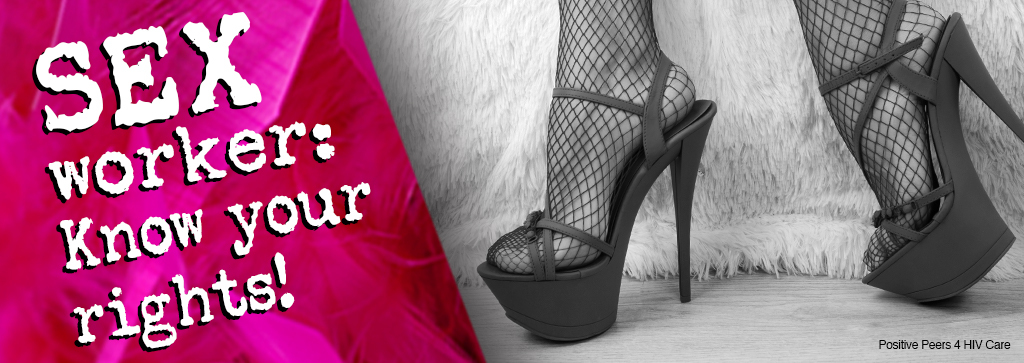
By: Jennifer McMillen Smith, LISW-S, HIV Social Worker at MetroHealth Medical Center and medically reviewed by Ann K. Avery, MD, Infectious Disease Physician at MetroHealth Medical Center
Studies have found that sex workers are 10 times more likely to contract HIV, so we want to give you the knowledge and tools you need to protect yourself if you are engaging in sex work. And first and foremost, your safety is our main concern.
First, be safe.
We get it, you’re in this to make money. But we encourage you to always make your first priority your safety.
If possible, try working with a partner. Watch each other’s backs. Let your partner know who you’re going with and where you’ll be. The more information they know, the safer you will be.
Condoms are ideal, but you may not want them or maybe you can’t depend on your clients wanting to use them. But that’s OK. You’ve got options to keep yourself safe from HIV and other STIs.
First, you can get on PrEP (pre-exposure prophylaxis). It’s a daily pill that will majorly reduce your risk for contracting HIV. Also, don’t even worry about the cost of PrEP – we have the hook up to get it for you as little as $0.
Another option is using an internal condom. These condoms can be inserted into your anus or vagina ahead of time, so you’ll be ready when the time comes. This is a great option to keep you safe and protected! You can read all about them in our blog here.
Also, if you do end up using an internal condom, we recommend telling the client beforehand. Might not be a good idea to surprise them with it – you never know how they will react.
Legal stuff you need to know:
Make sure you know your legal rights when it comes to sex work.
We’ve all heard about police and immigration raids, soliciting, “prostitution stings,” and civil orders. Do you know what to do if you or someone you know is threatened or attacked while working? We will break down some key rights for you:
Clients: Basically, it’s illegal mostly anywhere if you are soliciting for sex on the street. Men can be convicted even if they didn’t know the person was being forced.
Bail: You can apply for bail if you’re being held in custody. If you are charged, you may be “released under investigation” without conditions.
Court & Convictions: Whatever you do, don’t plead guilty to something you haven’t done. Typically, you can get soliciting or loitering removed from your record so it’s not visible when applying for other jobs. Basically, it’s worth fighting your case.
Reporting Violence: Many sex workers often don’t report rape or other types of violence because they’re worried they will be arrested. Finding the right resources to help protect you is key. UNAIDS is a great resource to start with.
HIV Criminalization: You probably know that getting charged with solicitation is a misdemeanor, but did you know if you disclose that you’re living with HIV, you risk getting charged with “solicitation after HIV positive test”, which is a felony?! (and if you don’t disclose, you could be prosecuted under HIV disclosure laws?! Talk about a conundrum!) This is written into the Ohio Revised Code and may be the case in many other states as well.
Are you ready to leave sex work?
Not everyone is in sex work by choice – sometimes people are sex workers by circumstance or coercion. If this applies to you, Getting out of sex work can be done. It’s not easy, and we are not here to judge or try and convince you to get out of that lifestyle. However, if or when you are ready to transition out of sex work, there are people and organizations that can help.
There are often other factors that lead you into sex work — maybe because you believed you wouldn’t be able to find a traditional job. But guess what? You have business skills, determination, and a work ethic — everybody offering a job wants these qualities in their employees. So don’t sell yourself short – you are pretty damn amazing!
If you live in Cleveland,Ohio, the Renee Jones Empowerment Center on West 65th is a great resource. In addition to therapy and social support, they offer life skills and job training to people who have been involved in sex work and/or victims of sex trafficking.
If you are transgender, MetroHealth Medical Center hosts a job fair each spring featuring local companies that hire trans employees. Due to the changing work environment with the pandemic, make sure to follow us on social media for updates on this and other local job fairs.
You have the power to help make sex work safer to reduce the risk of HIV
Even if you’re not a sex worker or someone who utilizes their services, you can still help make sex work safer for everyone and reduce the risk of HIV infection in the process.
Laws that criminalize sex work may have good intentions, but they actually make it much more dangerous for everyone involved. These laws push the practice underground, making it harder for sex workers to screen new clients, negotiate terms like price and condom use, and seek help from the police if things go wrong. It also means that sex workers often have trouble getting access to proper health care, including HIV treatment.
These laws also help to further stigmatize sex workers — and if you’re living with HIV, you know how powerful stigma can be.
Some studies show that decriminalizing sex work not only helps protect sex workers and allows them to fully participate in the economy, it also may help increase access and use of condoms. In fact, experts around the world believe decriminalizing sex work is a necessary step in HIV prevention.
So, what can you do to help?
- Get educated about how decriminalization of sex work can help protect sex workers and their clients and help prevent the further spread of HIV. Amnesty Internationalhas a great Q&A on why it is in favor of decriminalization.
- Get involved! There are some great organizations out there dedicated to making sex work a safer experience. We love organizations like Sex Workers Outreach Project USA. This organization is dedicated to defending the human rights of sex workers, decreasing violence against sex workers, and ending stigma through education and advocacy. There are SWOP chapters all over the country — but there isn’t one here in Cleveland yet. Why not start one?
- Read up on decriminalizing HIV here: because we need to work on decriminalizing BOTH things – HIV and sex work – to make things safer and better for people living with HIV especially.

